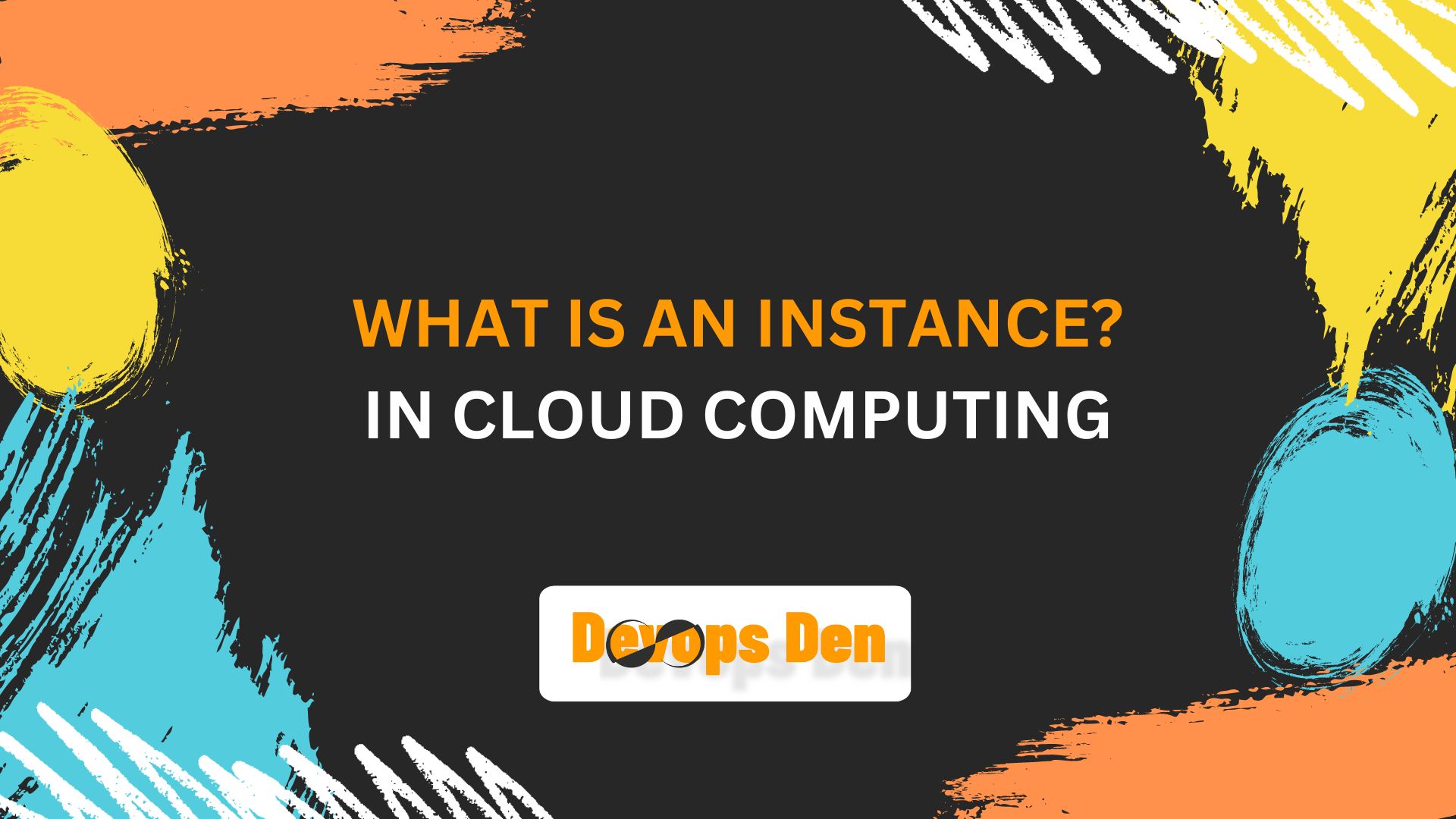What is an Instance in Cloud Computing?
 Devops Den
Devops Den
Cloud computing has revolutionized the way businesses and individuals access, store, and manage data. One of the foundational concepts of cloud infrastructure is the "instance." In this blog, we will explore what an instance is, how it works, and why it's critical to cloud services.
An instance in cloud computing refers to a virtual server that runs applications in the cloud. These virtual machines (VMs) or containers simulate physical hardware, allowing users to run applications, store data, or manage computing resources without having to own physical servers.
Instances are one of the key building blocks in Infrastructure as a Service (IaaS). They provide the flexibility to scale resources up or down based on demand, making them ideal for dynamic workloads and variable computational needs.
Types of Instances
Cloud providers offer different types of instances designed for various use cases. Here are some commonly used instance types:
General Purpose Instances:
Balanced between CPU, memory, and networking resources.
Best suited for web servers, development environments, and databases.
Example: AWS EC2 t2.micro, GCP e2-standard, Azure B-series.
Compute-Optimized Instances:
Designed for CPU-intensive applications.
Ideal for scientific modeling, gaming servers, machine learning algorithms, and batch processing workloads.
Example: AWS EC2 c5, GCP c2, Azure F-series.
Memory-Optimized Instances:
Equipped with a high amount of RAM.
Best for memory-intensive applications like large databases, caching, and real-time data processing.
Example: AWS EC2 r5, GCP m2, Azure E-series.
Storage-Optimized Instances:
Designed for applications that require high, sequential read and write access to large datasets.
Ideal for NoSQL databases, distributed file systems, and high-throughput data processing.
Example: AWS EC2 i3, GCP n2d, Azure L-series.
GPU Instances:
Integrated with powerful graphical processing units (GPUs).
Commonly used for tasks like video rendering, machine learning, deep learning, and scientific simulations.
Example: AWS EC2 p3, GCP a2, Azure NV-series.
Learn About How to Create CRUD Operations in MongoDB with Node.js (Without Mongoose)
Key Features of Instances
On-Demand Provisioning:
- Users can create instances as needed, only paying for what they use. This removes the need to maintain costly, idle servers.
Elasticity:
- Instances can be easily scaled up or down based on the workload demand. This elasticity allows businesses to adapt to peak usage without paying for excessive resources during off-peak times.
Customizability:
- Instances can be configured with specific amounts of memory, CPU power, and storage. You can select the operating system, install necessary software, and configure settings as you would with physical servers.
Resilience and Availability:
- Cloud instances are typically distributed across multiple data centers (regions and availability zones), ensuring high availability and minimizing downtime.
Cost-Efficiency:
Cloud providers often offer multiple pricing models:
On-demand: Pay for what you use, without long-term commitments.
Reserved Instances: Commit to a certain instance type for a year or more at a discounted rate.
Spot Instances: Purchase unused capacity at significantly reduced prices, ideal for non-critical or batch workloads.
How Instances are Managed
Managing instances in cloud computing is straightforward and efficient. Cloud providers like Amazon Web Services (AWS), Google Cloud Platform (GCP), and Microsoft Azure offer user-friendly interfaces and APIs for instance management. Here's a high-level overview:
Creating an Instance:
- Users select the instance type, operating system, storage, and region. Once configured, the instance is launched, ready to serve the required applications.
Monitoring Instances:
- Most cloud providers offer monitoring tools (like AWS CloudWatch, GCP Stackdriver, Azure Monitor) to track instance performance, such as CPU utilization, memory usage, disk I/O, and network traffic.
Scaling Instances:
- Auto-scaling mechanisms are often integrated to automatically add or remove instances based on predefined rules (e.g., scaling up during peak traffic).
Terminating Instances:
- Instances can be stopped, terminated, or deleted when they are no longer needed. This flexibility reduces resource waste and minimizes costs.
Real-World Use Cases
Instances play a vital role in supporting many real-world applications across industries. Here are a few examples:
E-commerce: Online retailers use cloud instances to handle unpredictable traffic surges during peak shopping periods like Black Friday. With scalable instances, they avoid downtime while optimizing resource usage.
Startups and Small Businesses: Rather than investing in costly hardware, startups can leverage cloud instances to rapidly build and deploy apps, services, or databases, paying only for what they use.
Big Data and Analytics: Instances allow businesses to run large-scale data analysis jobs, machine learning models, or other resource-intensive tasks, enabling faster insights from big data.
DevOps and CI/CD: Development teams use cloud instances for continuous integration and deployment (CI/CD) pipelines, running tests and building environments dynamically as part of their workflow.
Conclusion
Instances in cloud computing provide a flexible, cost-efficient, and scalable way to access computing power on demand. Whether you're running a small personal project or managing enterprise-level applications, cloud instances offer the reliability, performance, and customization required to meet your needs.
By understanding different instance types, pricing models, and management techniques, you can make better decisions on how to optimize your infrastructure in the cloud.
Subscribe to my newsletter
Read articles from Devops Den directly inside your inbox. Subscribe to the newsletter, and don't miss out.
Written by

Devops Den
Devops Den
Whether you're a seasoned DevOps professional or just starting your journey, we're here to support you with expert insights, practical guides, and valuable tools to help you succeed in the world of DevOps